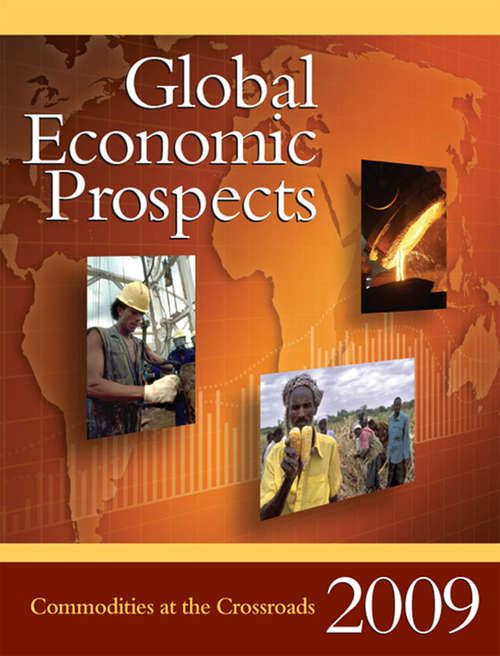Global Economic Prospects 2009
By:
Sign Up Now!
Already a Member? Log In
You must be logged into Bookshare to access this title.
Learn about membership options,
or view our freely available titles.
- Synopsis
- The eruption of the worldwide financial crisis has radically recast prospects for the world economy. 'Global Economic Prospects 2009: Commodity Markets at the Crossroads' analyzes the implications of the crisis for low- and middle-income countries, including an in-depth look at long-term prospects for global commodity markets and the policies of both commodity producing and consuming nations. Developing countries face sharply higher borrowing costs and reduced access to capital. This will cut into their capacity to finance investment spending-ending a five-year stretch of developing-country growth in excess of 6 percent annually. The looming recession presents new risks, coming as it does on the heels of the recent food and fuel crisis. Commodity markets, meantime, are at a crossroads. Years of fast GDP growth contributed to the rise in commodity prices, while the slowdown provoked by the financial crisis has seen those same prices plummet. However, other factors were also at play, notably a period of low investment in commodity supply capacity during the 1990s due to low prices and reduced demand from the countries of the former Soviet Bloc. In the longer run, slower population growth is expected to ease the pace at which commodity demand grows, while commodity producers are expected to discover sufficient new supplies and improved production techniques to prevent any acute shortages from developing. In part, this is because prices are projected to be higher than they were in the 1990s, which will induce necessary investment in exploration and production by firms. Higher prices will also promote greater conservation and substitution with more abundant alternatives, while policies to limit carbon emissions and boost agricultural investment and the dissemination of efficient techniques will also contribute. This year's 'Global Economic Prospects' also looks at government responses to the recent price boom. Producing-country governments have been more prudent than during earlier booms, and because they have saved more of their windfall revenues, they are less likely to be forced to cut into spending now that prices have declined. The spike in food prices tipped more people into poverty, which led governments to expand social assistance programs. Ensuring such programs are better targeted toward the needs of the very poor in the future will help improve the capacity of governments to respond effectively the next time there is a crisis.
- Copyright:
- 2009
Book Details
- Book Quality:
- Publisher Quality
- ISBN-13:
- 9780821378014
- Related ISBNs:
- 9780821378014
- Publisher:
- World Bank Publications
- Date of Addition:
- 08/16/11
- Copyrighted By:
- The World Bank
- Adult content:
- No
- Language:
- English
- Has Image Descriptions:
- No
- Categories:
- Nonfiction, Business and Finance
- Submitted By:
- Bookshare Staff
- Usage Restrictions:
- This is a copyrighted book.
